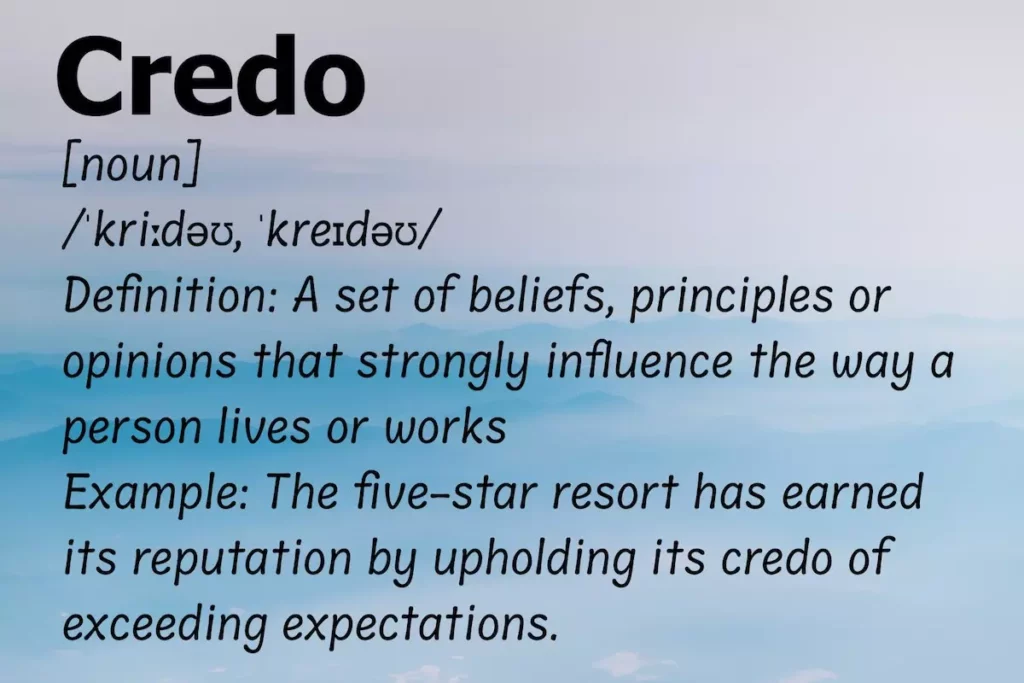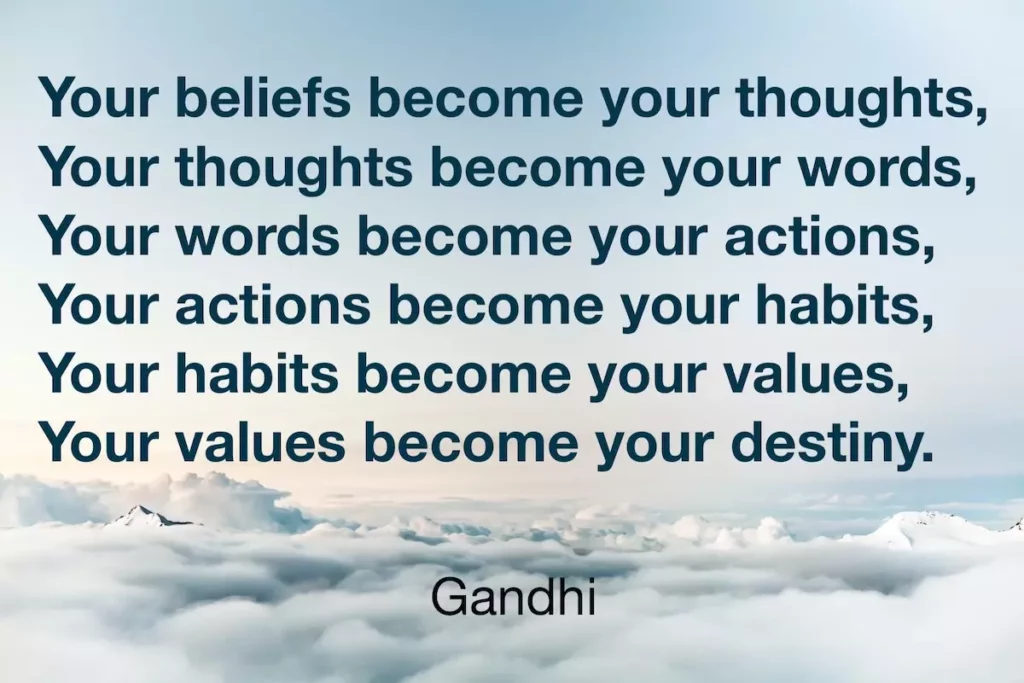Anyone thinking about retirement knows the importance of having a personal financial plan (although not everyone has one). If you don’t know how to get started, the Internet has a plethora of useful information on the subject at your disposal. There’s also no shortage of enthusiastic financial advisors who would be more than happy to curate a plan for your needs.
A good personal financial plan not only gives you a clear understanding of your financial situation, but also helps you to maintain discipline as you work towards your financial goals. But before you start planning and setting a series of goals for yourself, you might want to take a step back and ask yourself this simple question first: What are my money values?
Your values, not your goals, set the direction of your life. Identifying your money values is the first step towards financial success.
This article covers:
- Why It’s Important to Identify Your Money Values
- Why You Should Write Your Money Values Down
- Our Money Values (aka ‘The Wow Family Financial Credo’)
1. Why It’s Important to Identify Your Money Values
I love setting financial goals and I have, without wishing to sound conceited, done an excellent job achieving them. My friend Brenda, on the contrary, is constantly struggling to attain her goals. For instance, one of her goals last year was to save $7,000 every month. It was, quite frankly, very doable considering (1) she makes close to $20,000 a month, and (2) her husband is a corporate high-flier earning good income. Nevertheless, she only met her goal 5 out of 12 times. Her lack of success boiled down to one key factor — her financial goals and her money values were not aligned.
You see, there were months when she just HAD TO splurge on luxury goods (Chanel handbags being her number one weakness). Her reason was simple: ‘I work so hard, so I should reward myself.’ This obviously conflicted with her saving plan. On the one hand, she wanted to save more money for early retirement. On the other hand, she was not willing to sacrifice today for a better tomorrow. Her goal required her to practise deferred gratification, but her true self placed a higher value on immediate gratification. They were totally out of sync!

A value is your judgement of what’s important in life, while a goal is your aim or aspiration. You strive for your goals, but you live your values. Your goals might change from time to time, but your values, though aren’t set in stone, are pretty fixed. Your values, not your goals, set the direction of your life. They are like a compass, a navigational instrument to help you ascertain your current position and determine the direction to take in order to arrive at the destination.
Without a set of meaningful and memorable values, there is no sense of self, so how is it possible to know what your true goals are? Therefore, the first step towards financial success is to identify your money values. Once you have a clear understanding of your money values, you can then set financial goals that align with them.

2. Why You Should Write Your Money Values Down
Years ago, I read Google’s values/philosophy — 10 Things We Know to be True — and was so inspired by them. The 10 things are:
- Focus on the user and all else will follow.
- It’s best to do one thing really, really well.
- Fast is better than slow.
- Democracy on the web works.
- You don’t need to be at your desk to need an answer.
- You can make money without doing evil.
- There’s always more information out there.
- The need for information crosses all borders.
- You can be serious without a suit.
- Great just isn’t good enough.
Impressive, isn’t it? You can read more about them if you like: Google’s Philosophy – Ten things we know to be true
Values set the mood and direction of an organisation. They are principles that the organisation stand for and live by. That’s why most companies stipulate their core values clearly. So do schools, charities, international organisations, government organs and the lists goes on. Why not individuals like you and me?
Articulating your money values in words helps to:
- define the future you want to create,
- guide your actions, and
- provide reason and clarity in times of uncertainties.
It is a way to remind yourself of the things you care about in life.
3. Our Money Values (aka ‘The Wow Family Financial Credo’)

Credo. I love this word, which literally means ‘I believe’ in Latin. Hence, when Mr Wow and I wrote our money values in 2016, we decided to call it ‘The Wow Family Financial Credo’. Every now and then, we revisit our credo to see if it still holds true, to make sure that we are still on the right path. So here it goes… drum roll please…
The Wow Family Financial Credo
- Money is our tool. It serves us, not the other way around.
- No matter how much money we have, we will NOT be arrogant. We didn’t accumulate wealth to show off.
- The best thing money buys is time — Time to do whatever we want, whenever we want. We do not want to be cash-rich and time-poor, or worse, cash-poor and time-poor.
- Financial Independence Retire Early (FIRE) is a mindset. Getting there requires meticulous planning, prudent investment and a hell lot of economic discipline.
- FIRE is an alternative lifestyle. Life is short and we believe there’s more to it than working tirelessly for 40, 50 or even 60 years.
- Reducing expenses is the first and most vital step to FIRE. It’s not how much we earn but how much we spend.
- Lifestyle inflation is totally within our control. We do not need to increase our spending just because our income goes up. Other people’s spending habits do not dictate ours. We set our own bar.
- Responsible spending is not a chore. It is who we are, it is our way of life. Out-of-control spending only increases our time in the rat race.
- Being frugal is not being a cheapskate. We have inexpensive yet sophisticated taste.
- We will strive to lead a debt-free life. Debt is basically modern-day slavery.
- We will not be house-poor. The home we live in is a lifestyle expense. It is an unproductive asset because it does not yield passive income like an investment property.
- We will consume less. We will stay in a small home that suits our lifestyle and minimise our need for space and material items. We will only spend on things that truly matter. We will not succumb to consumerism.
- We will diversify and create multiple streams of income, passive or otherwise. We do not want to put all our eggs in one basket because it’s risky. One full-time job is risky. One business is risky. One expensive home with an elephantine mortgage is risky.
- Any extra income or windfall will be used to fund our investment first. The shopping can come later.
- Confidence is good, but facts are better. We will always do our due diligence before proceeding with an investment. We will only invest in things we understand.
- Time in the market is better than timing the market. When it comes to long-term investing, do not be swayed by short-term volatility. Do not interrupt compounding unnecessarily. Let it perform its magic.
- Selling in a bear market is never an option. During bad times, cut withdrawal rate and use cash reserves. Always maintain healthy liquidity. Do not panic. If we cannot control our emotions, we cannot control our money.
- Contentment is a conscious decision. We understand the concept of ‘enough’. We will not be greedy and expose ourselves to too much risk in retirement.
- Personal growth is important even in retirement, so we will never stop learning. We will continually gain new knowledge and skills, and engage in meaningful pursuits that bring happiness and fulfilment.
- We are not afraid to be different. We are not afraid to ignore social norms and pursue our ideal life. We are not afraid to live authentically. It’s okay to be a non-conformist.
- We always question. We question what we read, we question general advice, we question conventional wisdom. We especially question people with vested interest. We question so that we will not be misguided.
- We are highly versatile. When events change, plans change, we change.
Ok, that’s it! We hope you will be inspired to write your own credo after reading ours. If not, maybe Gandhi can galvanise you into action:

To your financial success!
Do your money values align or collide with your spouse’s? Learn how to create a successful financial future as a couple by reading How We Resolve Our Money Differences as a Couple and 6 Money Management Tips for a Healthy Relationship.
You may also like: Admit it: Money CAN Buy Happiness | 7 Levels of Wealth: A Different Way to Think About Money | What We Learned Growing Up Rich | Exploring Money Mindsets: A Rich Man & His Four Sons


